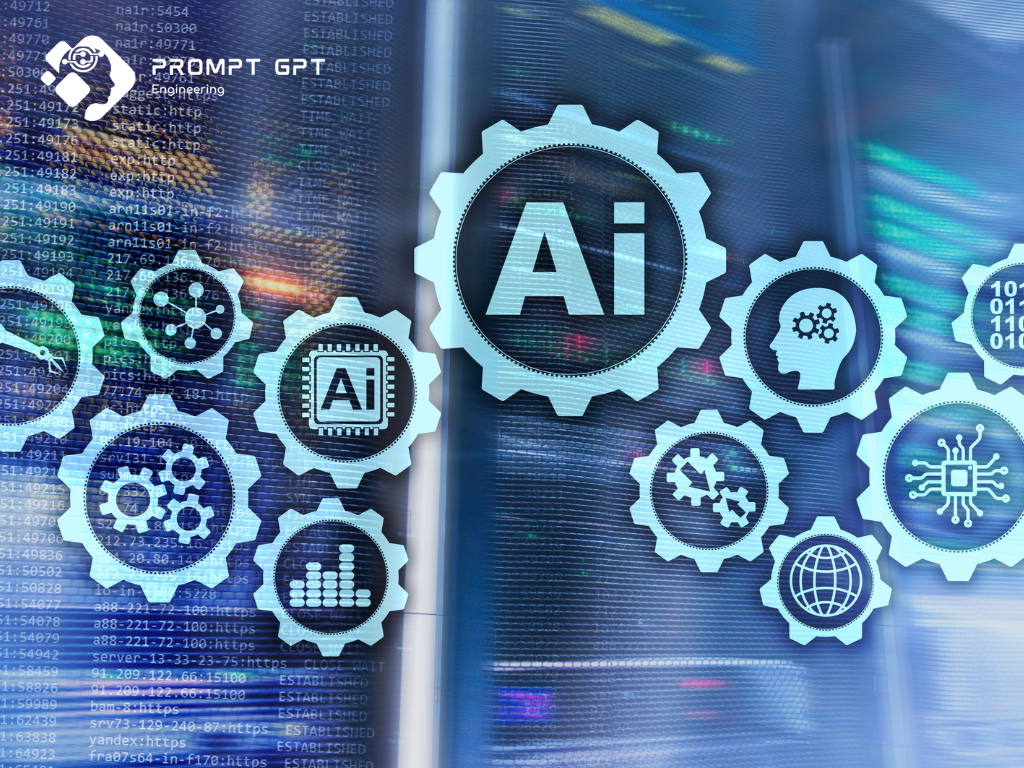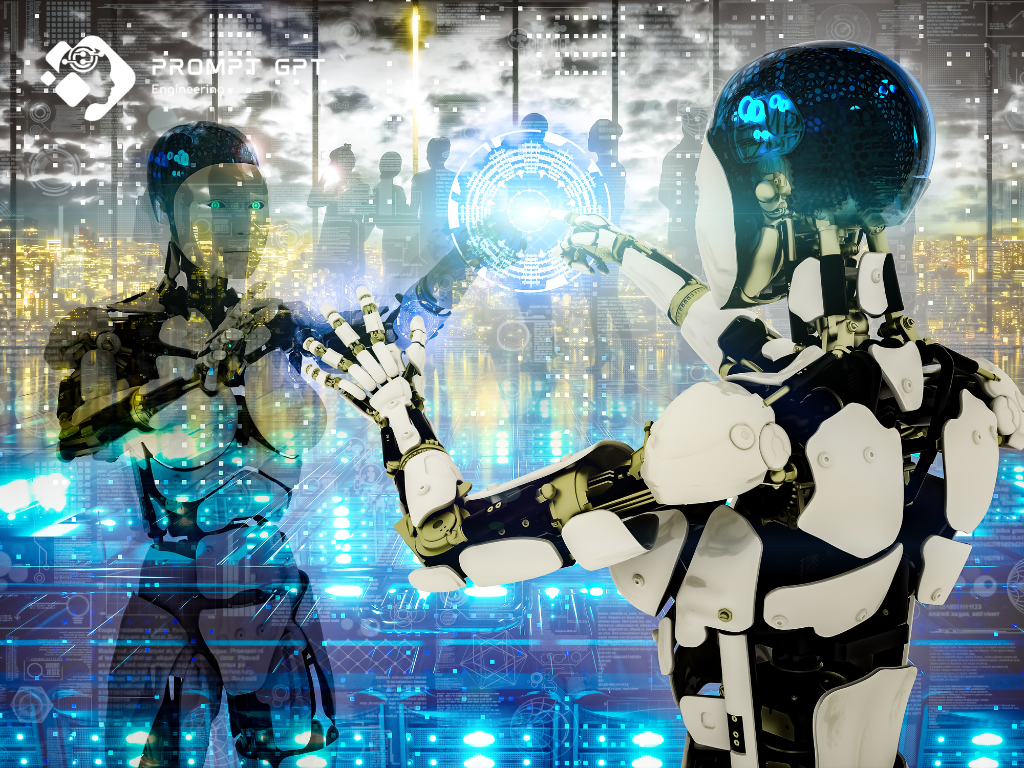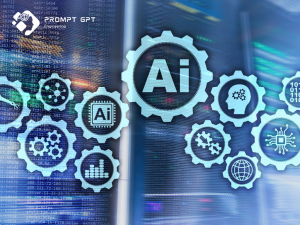[joli-toc]
AI development companies is profoundly reshaping the workforce by automating routine tasks, enhancing decision-making processes, and creating new job roles. The integration of AI technologies into various sectors has led to significant changes in job functions and work environments. AI systems can handle repetitive and time-consuming tasks, allowing employees to focus on more strategic and creative activities. This shift not only increases efficiency but also opens up opportunities for innovation and growth within companies.
- Automation of Routine Tasks: AI can perform tasks such as data entry, scheduling, and basic customer service, which traditionally required human intervention. This automation frees up human workers to concentrate on higher-value activities.
- Enhanced Decision-Making: AI provides insights through data analysis and predictive modeling, aiding managers and executives in making more informed decisions. This capability is particularly valuable in sectors like finance, healthcare, and logistics.
- Creation of New Job Roles: As AI technology evolves, new roles such as AI specialists, data scientists, and machine learning engineers are emerging. These positions require advanced technical skills and are critical for developing and maintaining AI systems.
Why Should Australian Companies Focus on Prompt Engineering?
Prompt engineering australia is becoming increasingly important for AI development companies in Australia. It involves designing and refining prompts to optimize the performance of AI models, particularly in natural language processing (NLP) applications. Effective prompt engineering ensures that AI systems understand and generate human-like responses, enhancing their usability and accuracy.
- Improving AI Accuracy: Well-crafted prompts help AI models interpret input more accurately, leading to better outputs. This is crucial for applications like chatbots, virtual assistants, and automated customer service.
- Enhancing User Experience: Prompt engineering ensures that AI interactions are seamless and intuitive, improving user satisfaction and engagement. This is particularly important for customer-facing applications where clarity and responsiveness are key.
- Boosting Innovation: By focusing on prompt engineering, Australian AI development companies can push the boundaries of what AI systems can achieve, fostering innovation and staying competitive in the global market.
AI Development Companies and Job Creation

What Types of Jobs Are Created by AI Development Companies?
AI development companies are generating a variety of new job roles that are essential for the development, implementation, and maintenance of AI systems. These roles require a diverse set of skills ranging from technical expertise to domain-specific knowledge.
- AI Specialists and Engineers: These professionals design and develop AI models and algorithms. They work on creating intelligent systems that can perform tasks traditionally done by humans.
- Data Scientists and Analysts: Data scientists analyze large datasets to extract meaningful insights and train AI models. Their work is critical for ensuring that AI systems are based on accurate and relevant data.
- Machine Learning Engineers: These engineers focus on implementing machine learning models and integrating them into applications. They ensure that the models operate efficiently and effectively.
- AI Product Managers: Product managers oversee the development of AI products, ensuring they meet market needs and user requirements. They work closely with technical teams to translate business objectives into AI solutions.
- AI Ethics Specialists: With the growing concern over AI ethics, there is a rising demand for specialists who ensure that AI systems are developed and used responsibly. They address issues such as bias, privacy, and transparency.
How Is Prompt Engineering Influencing Job Growth in Australia?
Prompt engineering is playing a significant role in driving job growth within the AI sector in Australia. As AI development companies focus on enhancing the performance of their AI models, the demand for professionals skilled in prompt engineering is increasing.
- Increased Demand for NLP Experts: Prompt engineering is crucial for NLP applications, leading to higher demand for experts in this field. These professionals are responsible for designing prompts that improve the interaction between AI systems and users.
- Creation of Specialized Roles: As the importance of prompt engineering grows, new specialized roles are emerging. These roles focus specifically on developing and optimizing prompts to enhance AI performance.
- Cross-Disciplinary Opportunities: Prompt engineering requires collaboration between linguists, AI researchers, and software developers. This cross-disciplinary approach is creating diverse job opportunities and fostering innovation in AI development.
Automation and Job Displacement
Which Jobs Are Most at Risk from AI Automation?
While AI offers numerous benefits, it also poses a risk to certain job roles, particularly those that involve routine and repetitive tasks. Jobs most vulnerable to automation include:
- Data Entry Clerks: AI can efficiently handle data entry tasks, reducing the need for human data entry clerks.
- Customer Service Representatives: AI-powered chatbots and virtual assistants can manage basic customer inquiries, potentially reducing the demand for human customer service agents.
- Manufacturing Workers: AI-driven robots and automation systems can perform assembly line tasks, impacting jobs in the manufacturing sector.
- Administrative Assistants: Routine administrative tasks such as scheduling, email management, and document processing can be automated using AI.
- Retail Cashiers: Automated checkout systems and AI-powered kiosks are increasingly being used in retail environments, potentially displacing cashier jobs.
How Can Workers Adapt to the Changes Brought by AI?
Adapting to the changes brought by AI requires workers to upskill and reskill, focusing on areas where human expertise complements AI capabilities. Strategies for staying relevant in an AI-driven job market include:
- Learning New Skills: Workers should focus on acquiring skills in areas such as data analysis, programming, and AI development. Online courses, certifications, and training programs can help workers gain these skills.
- Emphasizing Soft Skills: Skills such as critical thinking, creativity, and emotional intelligence are less likely to be automated and remain valuable in the workforce. Workers should highlight and develop these soft skills.
- Pursuing Continuous Education: Staying updated with the latest advancements in AI and related technologies is crucial. Continuous education through workshops, seminars, and industry conferences can help workers stay informed.
- Exploring New Roles: Workers should consider transitioning to roles that are less susceptible to automation, such as those in AI oversight, management, and maintenance. Exploring opportunities in emerging fields can also provide new career paths.
- Collaborating with AI: Understanding how to work alongside AI systems can enhance productivity and job security. Workers should learn how to leverage AI tools to improve their performance and value within their organizations.
Enhancing Human Capabilities with AI

How Is AI Augmenting Human Abilities in the Workforce?
AI is not only automating tasks but also augmenting human capabilities, enhancing productivity and efficiency in various industries. By leveraging AI tools, workers can perform tasks more effectively and make better-informed decisions.
- Decision Support Systems: AI-powered decision support systems analyze vast amounts of data to provide insights and recommendations, helping professionals make more accurate and timely decisions.
- Productivity Tools: AI-driven productivity tools automate routine tasks such as scheduling, email management, and data analysis, allowing workers to focus on higher-value activities.
- Enhanced Customer Interactions: AI-powered chatbots and virtual assistants can handle basic customer inquiries, freeing up human agents to address more complex issues and provide personalized support.
- Predictive Analytics: AI algorithms can predict trends and outcomes, enabling professionals in fields such as finance, healthcare, and marketing to plan and strategize more effectively.
- Improved Creativity: AI tools can assist in creative processes by generating ideas, providing design suggestions, and enhancing content creation, allowing workers to explore new possibilities.
The Role of Prompt Engineering in AI-Augmented Workflows
Prompt engineering plays a crucial role in developing AI tools that augment human capabilities. By designing effective prompts, AI developers ensure that AI systems understand and respond accurately to user inputs, enhancing their usability and efficiency.
- Optimizing AI Interactions: Prompt engineering ensures that AI systems provide relevant and accurate responses, improving the quality of interactions between AI tools and users.
- Customizing AI Solutions: By tailoring prompts to specific use cases and user needs, prompt engineers create AI solutions that are more effective and personalized.
- Enhancing User Experience: Well-designed prompts make AI systems more intuitive and user-friendly, increasing user satisfaction and adoption.
- Supporting Complex Tasks: Prompt engineering enables AI systems to handle complex tasks and provide detailed insights, supporting professionals in their decision-making processes.
Ethical Considerations in AI-Driven Employment
What Are the Ethical Implications of AI on Employment?
The integration of AI into the workplace brings several ethical challenges that need to be addressed to ensure fair and equitable employment practices:
- Job Displacement: One of the most significant ethical concerns is the potential for AI to displace jobs, particularly those involving routine and repetitive tasks. This displacement can lead to unemployment and economic hardship for affected workers.
- Bias and Fairness: AI systems can inadvertently perpetuate or even exacerbate biases present in the training data. This can result in unfair treatment in hiring, promotions, and other employment decisions.
- Privacy: AI systems often require large amounts of data to function effectively. Ensuring the privacy and security of employee data is crucial to prevent misuse and protect individual rights.
- Transparency: The decision-making processes of AI systems can be opaque, making it difficult for employees to understand how decisions affecting them are made. This lack of transparency can lead to mistrust and resistance.
- Access to Opportunities: There is a risk that AI could create a digital divide, where those with access to technology and AI skills have more opportunities than those without. This can exacerbate existing inequalities in the workforce.
How Are AI Development Companies Addressing These Ethical Issues?
AI development companies are implementing several measures to address the ethical challenges posed by AI in the workplace:
- Bias Mitigation: Companies are developing and deploying algorithms designed to identify and mitigate biases in AI systems. This includes using diverse training data and regularly auditing AI outputs for fairness.
- Data Privacy and Security: Strong data governance frameworks are being established to ensure the privacy and security of employee data. This includes encryption, anonymization, and strict access controls.
- Transparency Initiatives: Efforts are being made to increase the transparency of AI systems. This includes providing clear explanations of how AI decisions are made and allowing employees to challenge and appeal those decisions.
- Ethical AI Policies: Many companies are adopting ethical AI guidelines and policies that outline their commitment to responsible AI development and use. These policies often include principles such as fairness, accountability, and inclusivity.
- Inclusive Training Programs: To address the digital divide, companies are investing in training programs that provide employees with the skills needed to work alongside AI. This includes upskilling and reskilling initiatives focused on AI literacy.
The Future of Work with AI
What Will the Future Workforce Look Like with AI?
The future workforce will be significantly influenced by AI, leading to several key trends and predictions:
- Increased Automation: Routine and repetitive tasks will continue to be automated, freeing up human workers to focus on more complex and strategic activities.
- Hybrid Work Environments: AI will enable more flexible and hybrid work environments, where humans and AI systems collaborate seamlessly.
- New Job Roles: As AI technologies evolve, new job roles will emerge, such as AI trainers, ethics specialists, and AI maintenance technicians.
- Enhanced Productivity: AI tools will enhance productivity by providing real-time insights, automating administrative tasks, and enabling more informed decision-making.
- Continuous Learning: Lifelong learning will become essential as workers need to continually update their skills to keep pace with technological advancements.
How Can Australian Companies Prepare for the Future of AI?
To stay ahead in the AI era, Australian companies can take several proactive steps:
- Invest in Prompt Engineering: By focusing on prompt engineering, companies can ensure their AI systems are effective and user-friendly, providing a competitive edge.
- Foster a Culture of Innovation: Encourage a culture that embraces innovation and continuous improvement, ensuring that employees are open to adopting new technologies.
- Implement Ethical AI Practices: Develop and implement ethical AI policies that prioritize fairness, transparency, and accountability in AI deployment.
- Focus on Employee Development: Invest in training and development programs that equip employees with the skills needed to thrive in an AI-driven workplace.
- Collaborate with Educational Institutions: Partner with schools and universities to ensure that the future workforce is adequately prepared for the demands of an AI-driven job market.
Education and Training for an AI-Driven Job Market
What Skills Are Essential for the AI-Era Workforce?
The AI era requires a combination of technical and soft skills to navigate the evolving job market effectively:
- Technical Skills: Proficiency in programming languages (e.g., Python, R), data analysis, machine learning, and AI technologies is crucial.
- Critical Thinking: The ability to analyze complex problems, interpret data, and make informed decisions is essential.
- Creativity: Innovation and creative problem-solving skills are valuable for developing new AI applications and solutions.
- Adaptability: The capacity to adapt to new technologies and changing work environments is critical for long-term success.
- Communication: Strong communication skills are necessary to articulate complex AI concepts and collaborate effectively with multidisciplinary teams.
How Can Australian Educational Institutions Support This Transition?
Australian educational institutions play a pivotal role in preparing students for AI-driven careers:
- Curriculum Development: Incorporate AI and data science courses into the curriculum, ensuring that students gain practical knowledge and hands-on experience with AI technologies.
- Industry Partnerships: Collaborate with AI development companies to provide internships, apprenticeships, and real-world projects that give students practical experience.
- Lifelong Learning Opportunities: Offer continuing education programs and certifications in AI and related fields to help current professionals upskill and reskill.
- Interdisciplinary Programs: Develop interdisciplinary programs that combine AI with other fields, such as business, healthcare, and engineering, to create well-rounded graduates.
- Support for Research and Innovation: Encourage research and innovation in AI by providing funding, resources, and opportunities for students and faculty to work on cutting-edge projects.
Conclusion
AI is transforming the workforce by automating routine tasks, creating new job roles, and enhancing human capabilities. Prompt engineering is a critical component in the development of effective AI systems, ensuring that they are user-friendly and provide accurate results. Australian companies and educational institutions must work together to prepare for the future of work with AI by investing in training, ethical practices, and innovative technologies.



